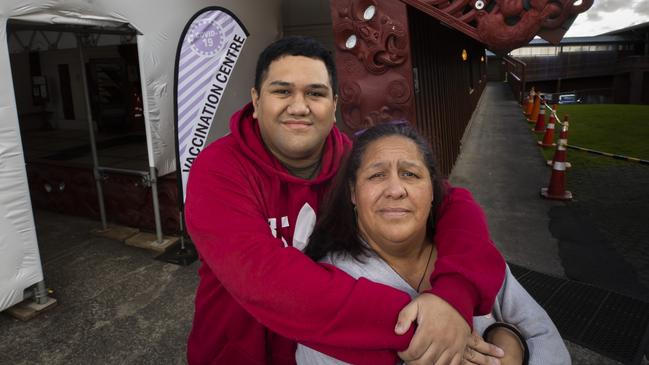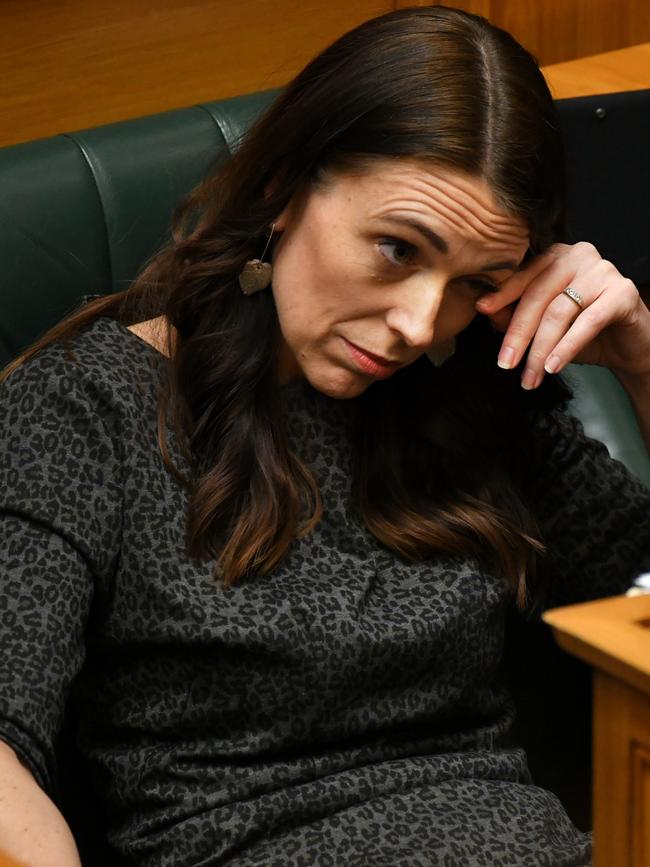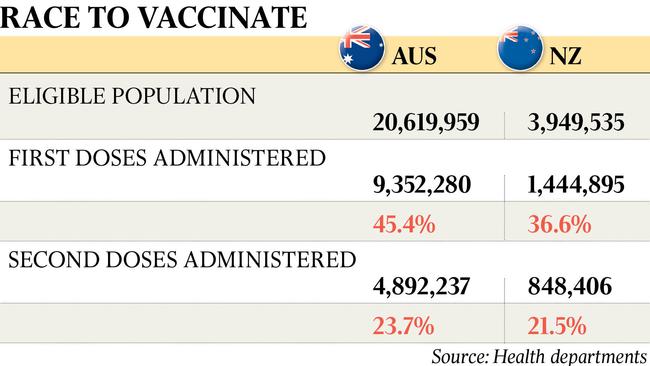‘Complacent’ Kiwis slow on Covid-19 vaccine uptake
New Zealand has come under heavy criticism for the slow pace of its vaccine rollout and failing to vaccinate its port workers as blame falls on complacency bred by low case numbers.

New Zealand has come under heavy criticism for the slow pace of its vaccine rollout and failure to vaccinate its port workers as complacency bred by low case numbers is blamed for the government “dropping the ball”.
Almost half of New Zealand’s port workers are yet to receive a single dose of a vaccine, despite being designated a highest priority group for vaccination. The elderly in aged-care facilities are also not yet all vaccinated.
New Zealand ranks at the bottom of OECD countries in the pace of its vaccine rollout, with about 21.5 per cent of the eligible population (16-year-olds and up) fully vaccinated, behind Australia, which has 23.7 per cent fully vaccinated.
New Zealand faced similar issues to Australia in the early stages of its rollout, with supply of the Pfizer vaccine - which it is using to vaccinate its entire population - initially constrained. Like Australia, the country’s medical regulator did not approve vaccines for emergency use so the process of approval took longer than in the US and the UK.
David Murdoch, a professor at the University of Otago, said there had been a lack of urgency in New Zealand on the part of the government and the population regarding vaccines.
“I think complacency is potentially a big issue,” Professor Murdoch said. “A lot of public life looks fairly normal apart from the travel, so it can be a bit easy to revert to previous behaviours and not think getting vaccinated urgently is an issue.”
He said the failure to ensure border workers were fully vaccinated months into the rollout was very concerning. “You would hope at this stage that you would have the vast majority of border workers vaccinated but that’s certainly not the case,” he said.
New Zealand has so far administered 2.3 million doses of vaccine and 335,000 of those have gone to Maori and Pacific Islander people, who have been prioritised. Cynthia Tubby, 52, from Manurewa in South Auckland, received her second dose of Pfizer vaccine on Tuesday at the Manurewa marae with her son, Raymond Rudolph.

The marae, a communal sacred place in Maori culture, began offering vaccinations in an initiative to increase vaccination rates in the community.
“I feel absolutely wonderful, I’m glad I got it done, it’s awesome to know we’ve had our Covid shot No. 2. At least now we’re sort of like we’re safe” Ms Tubby said. “The marae is so easily accessible to get to and you just feel so welcome.
“It’s very family-oriented, the kaupapa, which means the strength and our values, the aroha, the love, you feel makes you so welcome when you go there so you’re not shy.”
Helen Petousis-Harris, an associate professor at the University of Auckland, said although the pace of the vaccine rollout had been slow initially in New Zealand, now that supplies were more plentiful the pace would pick up. She predicted that by the end of the year, New Zealand would have a much bigger proportion of its population vaccinated than in the US or many European countries, with surveys showing hesitancy rates as low.
“The deliveries now should enable us to pretty much go hell for leather,” Professor Petousis-Harris said. “I think the fact we’ve fallen behind Australia will be a great motivator. “If we can make the vaccine accessible to everybody, we could actually be further ahead by the end of the year. And at the rate we’re going, we’re on target for that.”

The vaccine rollout comes as New Zealand celebrates its success in having eliminated Covid-19. It continues to record cases in quarantine but there has been no leakage of the virus from quarantine hotels for months.
New Zealand has had only two lockdowns since the pandemic began, and has dealt with the very few cases in the community that occurred through genomically sequencing every case and then tracking exactly where it has spread, shutting down chains of transmission.
New Zealand’s ability to maintain Covid zero relies on strict border controls. Nick Wilson, a professor of public health at the University of Otago, said the fact the lockdown at the beginning of the pandemic was called so early and was so strict meant the country was able to quickly eradicate the virus. “If there had been a delay of a week, it is possible that it would have been uncontrollable even with the level of lockdown,” Professor Wilson said.
Jacinda Ardern’s government is this week set to lay out a strategy for reopening the country once vaccination rates are high enough, but microbiologist Siouxsie Wiles said the population was unlikely to accept many cases in the community, particularly as the country had a very limited ICU capacity.




To join the conversation, please log in. Don't have an account? Register
Join the conversation, you are commenting as Logout